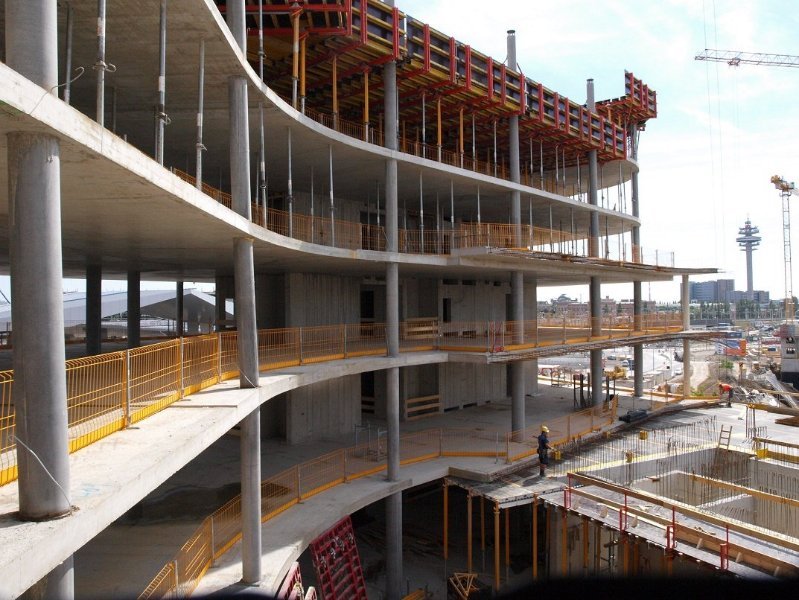-
Posts
3,065 -
Joined
-
Last visited
Content Type
Events
Forums
Downloads
Quizzes
Gallery
Blogs
Everything posted by MikeandDow
-

Seven Days Given to Investigate Collapse of Chinese-Built High-Rise
MikeandDow replied to webfact's topic in Bangkok News
Think every one knows the answer ?? but will it see light of day No,! swept under the carpet, will be forgotten next news cycle, You buy cheap you get cheap!!- 28 replies
-
- 10
-

-

-

-

Earthquake Rocks Bangkok: Building Collapses with 40 people inside
MikeandDow replied to CharlieH's topic in Thailand News
If you think Bangkok did well !! go tell it to the familys of the dead!! -

Earthquake Rocks Bangkok: Building Collapses with 40 people inside
MikeandDow replied to CharlieH's topic in Thailand News
That is a Thai standard and i dont work here in the Thai construction Industry thank god ! more in a western style industry were they have safety and quality and now you are changing its superficial cracks instead of cracks you need to be more specific when posting -

Earthquake Rocks Bangkok: Building Collapses with 40 people inside
MikeandDow replied to CharlieH's topic in Thailand News
cracks in walls need to be Inspected to determin the extent, are the wall load bearing ?? by saying they do not matter can only be determined by a structural engineer and you are not that ! -

Earthquake Rocks Bangkok: Building Collapses with 40 people inside
MikeandDow replied to CharlieH's topic in Thailand News
Its called a Forum people post there opinions it maybe in your opinion Ceiling panels, tiles falling off, or wall cracks are not serious issues. but if you are not a strucural engineer thats all it is your opnion cracks are absolutely to be expected and are accommodated under the latest building code. I am a Quality manager for the construction Industry and I have never seen a building code that allows cracks i think i would have to call that BS -

Earthquake Rocks Bangkok: Building Collapses with 40 people inside
MikeandDow replied to CharlieH's topic in Thailand News
If you think that telling the truth is Thai bashing and stating facts and you are Uncomfortable with that tooo bad stop trying to be a mod !! move on -
That is correct interstitial space is used for that, but they were building a table top design no steel beams required it is a well know fact that table top design is not quake proof, its very unstable its isimilar in design as the twin towers without the center steel core, the question that should be asked is who approved this design as the building code requires quake proof buildings after 2021 and table top design is not quake proof. The whole Project was doomed from the start the contractor who won the bid ITD-CREC was the cheapest therefore can be reasonable assumed cheap materials to be used, contractor ITD-CREC not very successful in completing projects on time, Safety and quality very poor, have several disaster already, very courpt company, it is obvious no due diligence was carred out in awarding this project to this company not only is the contractor resonsible for this disaster, the Thai goverment has to bear some responsibility for awarding the contract without due diligence.
-

14 Provinces Affected by Earthquake, Relief Efforts Underway
MikeandDow replied to Georgealbert's topic in Thailand News
Well why?? this so called expert company! building a Table top design building, when a table top design is well know not for unstable soils and not earthquake proof !! its because Its Cheap !!! -

Earthquake Rocks Bangkok: Building Collapses with 40 people inside
MikeandDow replied to CharlieH's topic in Thailand News
A better word is Unknown the almight baht can buy u anything untill All the buildings are Inspected to the relvent codes it is Unknown -

Earthquake Rocks Bangkok: Building Collapses with 40 people inside
MikeandDow replied to CharlieH's topic in Thailand News
Yes read the same, guess the guy who approved the design should be a bit worried !! -

Earthquake Rocks Bangkok: Building Collapses with 40 people inside
MikeandDow replied to CharlieH's topic in Thailand News
how is my post thai bashing, telling you to read the news, sorry if you are dislextic you need to medicate -

Earthquake Rocks Bangkok: Building Collapses with 40 people inside
MikeandDow replied to CharlieH's topic in Thailand News
Read the news, you can see that there was a lot of strucural damage a lot mor to be assest -
The major reason concrete is favored over steel construction in towers is that concrete can make flat floor slabs with a minimal depth of structure. Since no beams are necessary, the underside of the slab can be plastered and you have a smooth flat ceiling. Note the uniformity of the floor slabs in the photo below, especially the underside. This also significantly reduces the overall height of the building. unlike concrete, it is nearly impossible to create a completely flat floor assembly in a steel framed building. A floor slab in a steel structure consists of beams, girders and decking. All of these members have different depths. The only way to create a flat ceiling surface is to suspend a floating hung ceiling below the lowest point of a steel depth-of-structure. This leaves an interstitial space. interstitial space in steel construction is a waste. Not only that, but the depth of this wasted space can be as much as three feet per floor, adding significantly to the overall height of the building.
-

Earthquake Rocks Bangkok: Building Collapses with 40 people inside
MikeandDow replied to CharlieH's topic in Thailand News
Its not if the design had seismic protection or not it is HOW was it built where there 3rd pary inspections of the constuction if not who was policing the construction. Design aproval is just a small part of Projects -

Earthquake Rocks Bangkok: Building Collapses with 40 people inside
MikeandDow replied to CharlieH's topic in Thailand News
That would mean nothing the main question is were the relvent building codes Policed during contsruction if so there would be reports if not why not -

Earthquake Rocks Bangkok: Building Collapses with 40 people inside
MikeandDow replied to CharlieH's topic in Thailand News
This begs the question who is doing the assements !! 3rd party inspection complying with the ISO 17020 standards. likes of Bureau Veritas hopefully not a backyard builder -

Earthquake Rocks Bangkok: Building Collapses with 40 people inside
MikeandDow replied to CharlieH's topic in Thailand News
Thailand has a plethora of building code, safety protocols, quality standards are they implemented NO !! are they policed NO !! you can get ANY approval you like !! the almight baht is king !! the question you should be asking DID they police the codes and standards ? was they 3rd body inspections done ? Did the materials meet the required standards ect ?? -

Earthquake Rocks Bangkok: Building Collapses with 40 people inside
MikeandDow replied to CharlieH's topic in Thailand News
I wonder who is going to pay for all this ?? Doubt insurance will cover force majeure -

Earthquake Rocks Bangkok: Building Collapses with 40 people inside
MikeandDow replied to CharlieH's topic in Thailand News
There is one problem he might be the exception but sticking rigidly to the construction plan is not the answer a monkey can do the job it is experience and being able to question and alter the plan for the better what if the plan is wrong ?? sticking to the plan just inbuids the faults there are far and a few thais to go against there bosses -

Earthquake Rocks Bangkok: Building Collapses with 40 people inside
MikeandDow replied to CharlieH's topic in Thailand News
if you think that this goverment is going to hold a chinse company responsible you are dreaming, this will be swept under the carpet and forgotten in a couple of weeks -

Earthquake Rocks Bangkok: Building Collapses with 40 people inside
MikeandDow replied to CharlieH's topic in Thailand News
all depends if a curing agent is used or not without a spec desgn mix its just guess work -

Earthquake Rocks Bangkok: Building Collapses with 40 people inside
MikeandDow replied to CharlieH's topic in Thailand News
If cement isn't adhering to rebar, it could be due to several factors, including improper mixing, placement, or the use of a mix that is too dry or too wet, or the rebar being coated or contaminated, western construction rebar is stored off the ground and cleaned before use, curing agents are used in western construction chinse are living in dark ages they still use beding straw to cure concrete which is totally non effective for high strength concrete





